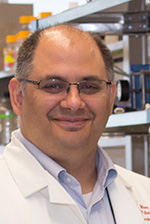Investigators
Valder Arruda, MD, PhD
Associate Professor of Pediatrics
Perelman School of Medicine at the University of Pennsylvania
Children's Hospital of Philadelphia
Dr. Arruda is an Associate Professor of Pediatrics and the chairman of the Gene Therapy and Vaccine Graduate School Program at PENN. He is an international expert in hemostasis and thrombosis, with a particular expertise in developing novel therapeutics for the hemophilias. He is a pioneer in gene therapy and is well-recognized as a leader in the pre-clinical studies including providing the first demonstration that factor expression after gene therapy can both eradicate inhibitors and induce immune tolerance in large animal models of hemophilia A and B.
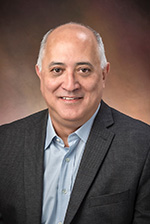
Rodney M. Camire, PhD
Professor of Pediatrics
Perelman School of Medicine at the University of Pennsylvania
Endowed Chair of Pediatric Hematology
Children's Hospital of Philadelphia
rcamire@pennmedicine.upenn.edu
Dr. Rodney Camire is a Professor in the Department of Pediatrics-Hematology Division at UPENN and Children’s Hospital of Philadelphia and he holds the CHOP Research Hematology endowed chair. Dr. Camire’s research program centers on the biochemistry of coagulation factors including the bioengineering of clotting factors for therapeutic development. His group has a particular interest in the structure/function of both factor V and factor VIII and how their proteolytic processing by clotting factors impacts function and their immune recognition.
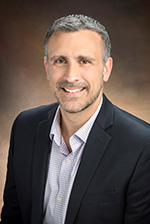
Roland Herzog, PhD
Professor of Pediatrics
Riley Children's Foundation Professor of Immunology
Director of Gene and Cell Therapy
Indiana University School of Medicine
Dr. Herzog is serves as Riley Children’s Foundation Professor of Immunology and Director of the Gene and Cell Therapy Program within the Herman B Wells Center for Pediatric Research at Indiana University. He currently serves as editor-in-chief of Molecular Therapy Methods & Clinical Development. Dr. Herzog has long-standing research interests in gene therapy and immune tolerance induction for hemophilia, and in mechanisms of the immune response to coagulation factors.
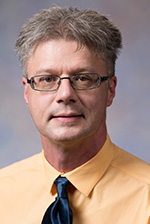
Sriram Krishnaswamy, PhD
Professor of Pediatrics
Professor of Biochemistry and Biophysics
Perelman School of Medicine at the University of Pennsylvania
Children's Hospital of Philadelphia
Dr. Sriram Krishnaswamy is a Professor of Pediatrics at UPENN and the Children’s Hospital of Philadelphia and is a Stokes Investigator at CHOP. He is an international expert in coagulation factor enzymology and structural biology. The major interest of the laboratory lies in using enzymology and biophysical techniques to relate structure to mechanisms of specificity and function in the enzyme complexes of blood coagulation. A specific emphasis is placed on how FV and FVIII function and how their structures influence binding to different ligands such as FX/FXa, vWF, as well as inhibitory antibodies.
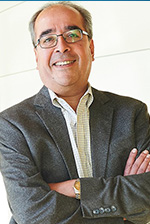
David Lillicrap, MD
Professor, Department of Pathology and Molecular Medicine
Canada Research Chair in Molecular Hemostasis
Queen's University
Dr. Lillicrap is a Professor in the Department of Pathology & Molecular Medicine at Queen’s University in Kingston, Canada. He is the recipient of a Senior Canada Research Chair in Molecular Hemostasis. Dr. Lillicrap’s research program focuses on the life cycles, interactions and clinical implications of factor VIII and von Willebrand factor molecular pathobiology. An issue of longstanding interest to the group, that is of direct relevance to this project, is the characterization of factors influencing FVIII immunogenicity and tolerance.
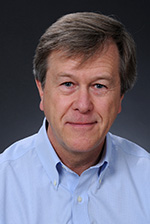
Michael Milone, MD, PhD
Associate Professor of Pathology and Laboratory Medicine
Associate Director, Toxicology Laboratory
Perelman School of Medicine at the University of Pennsylvania
Dr. Milone is an Associate Professor of Pathology & Laboratory Medicine at PENN. He is an international expert in immunotherapy and pioneer in genetic manipulation of T cells as a therapeutic platform for cancer and autoimmunity. He has helped to bring several additional T cell therapies into clinical phase testing.
